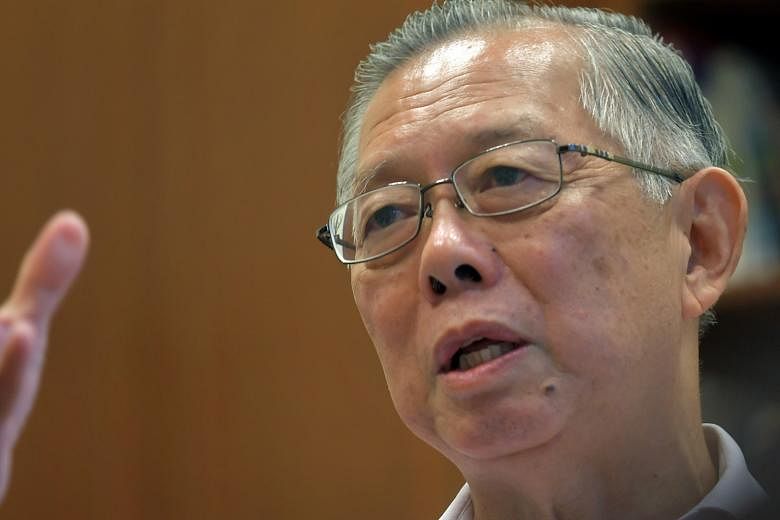Having developed a First World economy, Singapore should now seek to cultivate a First World society - one marked by graciousness towards one another, said former head of civil service Lim Siong Guan at a lecture last night.
Graciousness is about looking beyond one's needs to the needs of others, he said. It is not just about helping the poor and the displaced, but also about "the countless little interactions" between neighbours, colleagues and others one meets throughout the day.
"It is the little things that define culture and the reality of society," he added.
To illustrate his point, Mr Lim gave a few Japanese examples.
A friend of his visited Japan. After lunch, he was asked if he wanted coffee. He said yes, but noticed his Japanese friends declined. They later explained they saw others waiting for a table. "So his friends decided the right thing to do was to release their table as quickly as possible," he said.
Another story: A group climbed the Sydney Harbour Bridge. After the climb, most used their towels to wipe off their sweat, but the Japanese in the group also used them to wipe the safety gear clean.
"They were doing it in consideration of the next group," he said.
A third story: Once, Mr Lim was picked up at a Tokyo airport by a chauffeur. He helped Mr Lim get to the carpark with his luggage and then told him to wait at the kerbside while he ran to the car, instead of walking. "This was his expression of considerate service."
The Japan examples are "not to urge everyone to become Japanese cultural clones", he said, but to show it is possible to forge a gracious social environment.
Mr Lim was speaking at the National University of Singapore in his second lecture as S R Nathan Fellow for the Study of Singapore.
Its main theme is building a better Singapore for its fourth generation, with graciousness being an essential trait for a happy Singapore.
Making the link between graciousness and happiness, Mr Lim cited a book, The Hidden Wealth Of Nations, by David Halpern. It argues that wealthy societies can become happier only by improving the quality of relationships, and not by accumulating more wealth.
One reason is that humans "derive an enormous sense of satisfaction and fulfilment" from helping and serving others, he said.
In forging graciousness, the Government can merely facilitate, he said, by building more common spaces in housing estates, for instance.
Responsibility lies with each person taking the initiative to befriend his neighbours in those spaces.
But there is cause for optimism, Mr Lim said.
Groups of Singaporeans he has interacted with in seminars, whether young or old, all rank a gracious society very highly, when asked what they want for Singapore in 50 years' time.
As this is a cultural shift which takes a long time to achieve - perhaps 30 to 40 years or more - Singapore should begin now if it wants to bring about the change by SG100, the time of the fourth generation of Singaporeans, Mr Lim said.
"It requires conviction, tenacity and action now."
Start with today's young, he urged, citing the Chinese saying, san sui ding zhong shen, which means: "At age three, you know what a person will be like for life."
He noted that primary school teachers would sometimes say they have to "undo the damage" parents did at home. Values like graciousness are more often "caught by example" than "taught by instruction", he pointed out.
"Developing a whole culture and value system starts from the home, reinforced by school and society," he said.


